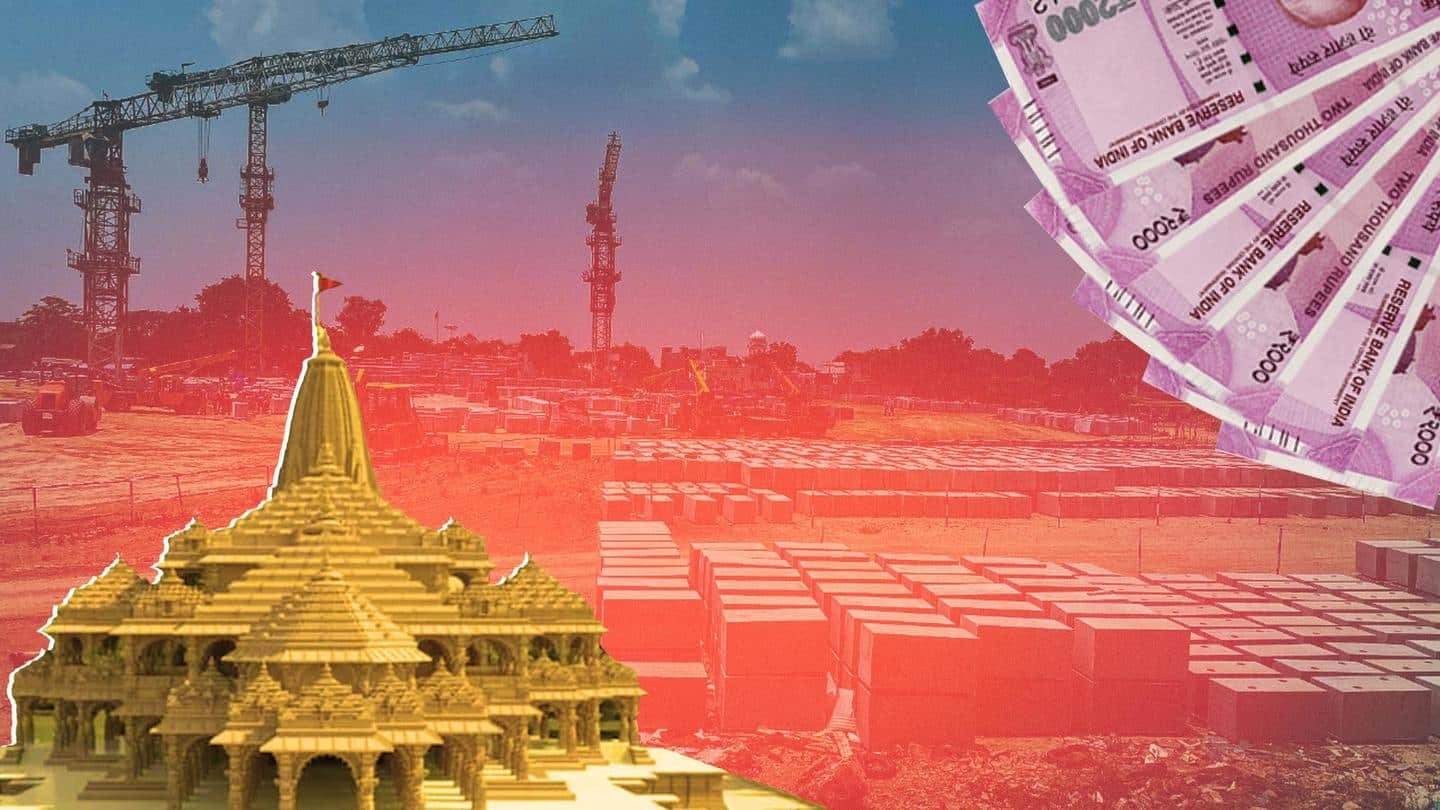
Ayodhya Ram Temple to cost Rs. 1,800 crore, claims trust
What's the story
The construction of 'Ram Mandir' in Ayodhya will cost a whopping Rs. 1,800 crore, the Ayodhya Ram Temple trust revealed on Sunday.
Officials of the Shri Ram Janmabhoomi Teerth Kshetra Trust approved the construction rules and manual after meetings in Ayodhya, PTI reported.
The new temple complex will also host the idols of Hindu seers and the main characters from Ramayana.
Here's more.
Context
Why does this story matter?
The trust was set up after a Supreme Court order in February 2020 to manage the construction of the new 'Ram Temple' in Ayodhya at the site of the Babri Mosque.
The trust was awarded the 2.77 acres of the disputed land after the SC verdict.
The trust has 15 members of which 12 have been nominated by the central government.
Cost
Rules, bye-laws, cost discussed in key meeting
After a crucial meeting in Faizabad Circuit House, Ayodhya, Trust members said that the total cost of construction will be Rs. 1,800 crore, based on a report by experts.
General Secretary Champat Rai said that rules and bye-laws of the trust were also finalized after long contemplation with concerned parties.
The construction of the 'Ram Mandir' may be finished by December 2023.
Twitter Post
Watch: Construction underway at 'Ram Janmabhoomi' site
भगवान श्री राम की पावन जन्मभूमि पर निर्माणाधीन मंदिर के प्रस्तावित गर्भगृह की वर्तमान स्थिति के कुछ चित्र प्रस्तुत हैं।
— Shri Ram Janmbhoomi Teerth Kshetra (@ShriRamTeerth) August 26, 2022
Here are some pictures from the proposed Garbha Gruha of Shri Ram Janmbhoomi Mandir in Ayodhya. pic.twitter.com/nDmanhUfsb
Information
Cost may go up, says Rai
Construction is expected to be completed by December 2023 and Lord Ram may be seated in the sanctum sanctorum of the 'Ram Mandir' by January 2024, Rai told PTI.
The sanctum sanctorum will reportedly be made from white marble from Rajasthan's Makrana hills.
"After several revisions, we have reached to this estimate (Rs. 1,800 crore). Even this might go up," Rai said.
Meeting
Temple complex to have variety of figures
Additionally, the temple complex will have idols of influential Hindu seers and statues of the main characters of the Ramayana period.
The meeting was attended by 14 of the 15 Trust members, including committee chairman Nripendra Mishra, treasurer Govind Dev Giri, and trust chairman Mahant Nritya Gopal Das.
Other members who attended physically were Dr. Anil Mishra, Mahant Dinendra Das, Udupi Prasannacharya, and Kameshwar Chaupal.